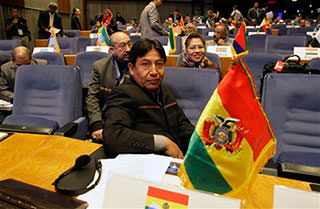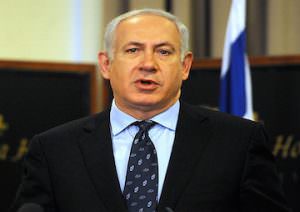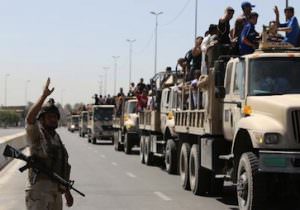A Rebuke to the American-Israeli Economic War on Iran
President Barack Obama said, “The Iranian government must face a world that stays united against its nuclear ambitions." The refusal of 120 countries to boycott Iran undermines the point.
In his acceptance speech in Charlotte, N.C., President Barack Obama said, “The Iranian government must face a world that stays united against its nuclear ambitions.” It wasn’t much noted in the Western press, but in fact the recent Non-Aligned Movement meeting in Tehran last month delivered a slap in the face to the Israeli-American financial and commercial war on Iran over its nuclear enrichment program. The 120 countries of the movement, representing some two-thirds of United Nations member states and 55 percent of the world’s population, refused to boycott Iran. More, they upheld Iran’s right to pursue nuclear-powered electricity. But given that the U.S. and Europe constitute half of the world’s gross domestic product and maintain its most powerful standing armies, does the meeting’s symbolic gesture really matter?
United Nations Secretary-General Ban Ki-moon defied severe pressure from Israeli Prime Minister Benjamin Netanyahu and attended the Tehran summit. Some reports suggested that Ban went because he was annoyed by the vehemence of the Israeli government. India Prime Minister Manmohan Singh not only insisted on attending but brought a big delegation of businessmen with him looking for deals with Iran. For the first time since 1979, an Egyptian president, Mohamed Morsi, flew to Tehran, signaling an end to Cairo’s decades of obsequiousness toward the U.S.
The final communiqué upheld Iran’s right to pursue the enrichment of uranium for energy purposes and rejected the United States’ boycotts and sanctions on Iran. It further warned that any attack on nuclear facilities would be illegal under international law and a violation of basic human rights. It stressed Palestinian rights, including the right of Palestinian refugees to return home to what is now Israel. In other words, the Non-Aligned Movement document contained the opposite of everything Netanyahu and Hillary Clinton say on each of these points.
Ayatollah Ali Khamenei, Iran’s religious head of state, addressed the conference, saying:
The Islamic Republic of Iran considers the use of nuclear, chemical and similar weapons as a great and unforgivable sin. We proposed the idea of [a] “Middle East free of nuclear weapons” and we are committed to it. This does not mean forgoing our right to peaceful use of nuclear power and production of nuclear fuel.
In remarks that went largely unreported in the Western press, Khamenei castigated the U.S., Israel and other nuclear powers with big stockpiles of warheads for their hypocrisy in refusing to give up their arsenals while insisting on nonproliferation for others. He called for an end to nuclear weapons: “Our motto is: ‘Nuclear energy for all and nuclear weapons for none.’ ” The Non-Aligned Movement final communiqué echoed that plea.
Although Iran won on the issues most pressing, the conference held some disappointments for Tehran. The delegates declined to support the increasingly murderous regime of Bashar al-Assad in Syria, which Iran backs. And when Morsi in his speech criticized the Syrian crackdown, an Iranian interpreter for Channel One is alleged to have substituted the word “Bahrain” for “Syria.” Bahrain, ruled by a Sunni regime that has repressed its Shiite majority, angrily protested the substitution.
Washington and Tel Aviv want Iran turned into a pariah. The country’s leaders have rejected the legitimacy of Israel as a state and refuse to abandon plans for nuclear power plants, which the U.S. and Israel believe are a cover for an atomic weapons program. Khamenei has repeatedly condemned nuclear weapons and denies nuclear weapon ambitions. The U.S. Treasury Department nevertheless threatens third-party sanctions on banks and companies that deal with their Iranian counterparts. That is, it menaces them with being cut off from the $15 trillion-a-year U.S. economy. Washington seeks to do to Iran what it did to Iraq in the 1990s, casting its people down to fourth-world economic conditions as a punishment for their government’s policy.
Beginning with the National Defense Authorization Act that went into effect on June 28, the United States government is now policing a financial blockade on the sale of Iranian petroleum. The U.S. has gone far beyond the sanctions authorized by the United Nations Security Council and is twisting the arms of the world’s oil consumers to cease buying Iranian oil altogether. It has given a pass to China, which objected, but exempted other countries only if they could demonstrate a plan for reducing Iranian oil imports. To give importers another option, the U.S. persuaded Saudi Arabia to pump extra crude. Ironically, this blockade of Iranian petroleum is contributing to high gasoline prices, an issue on which the Republicans have attacked Obama during the presidential campaign.
The very severe sanctions may be the Obama administration’s way of holding at bay Netanyahu’s increasingly frantic demand for military action against Iran, and Israel’s repeated threat to go it alone in attacking the Islamic Republic if necessary. U.S. officials such as Chairman of the Joint Chiefs of Staff Gen. Martin Dempsey have recently let Netanyahu know that he will not be allowed to drag the U.S. into a shooting war on Iran, allegedly provoking Netanyahu into a shouting match with the U.S. ambassador to Israel.
Although Iranian exports fell in July, as the European Union implemented its own boycott of Iranian oil and the U.S. put pressure on Japan and South Africa, Iranian officials said in late August that exports had returned to 2 million barrels a day, Iran’s normal trade in the commodity. The oil market has recently tightened, with U.S. benchmark crude prices headed back toward $100 a barrel, making it easier for Iran to sell its petroleum, even if it has to insure the shipments itself and find financial workarounds to receive payments from its customers outside the U.S.-dominated world banking system.
Iran comes out of the Non-Aligned Movement conference considerably strengthened with regard to its diplomatic standing versus Israel, the United States and Europe. The right-wing Likud government of Israel in particular came away with a stinging rebuke and the movement issued a warning against unilateral military action on Iran’s nuclear enrichment facilities. The U.S. economic boycott and financial blockade were also castigated. Iran was, in the aftermath, able to characterize the Israeli-American campaign as a narrow policy of hypocrisy rejected by much of the world. Still, it is unrealistic for Iran to expect India or any of its other trading partners to stand up to Israel or the U.S., should they decide to take more dramatic action. The Non-Aligned Movement victories are important, but they are not decisive in the Israeli-American economic war on Iran.
Your support matters…Independent journalism is under threat and overshadowed by heavily funded mainstream media.
You can help level the playing field. Become a member.
Your tax-deductible contribution keeps us digging beneath the headlines to give you thought-provoking, investigative reporting and analysis that unearths what's really happening- without compromise.
Give today to support our courageous, independent journalists.






You need to be a supporter to comment.
There are currently no responses to this article.
Be the first to respond.